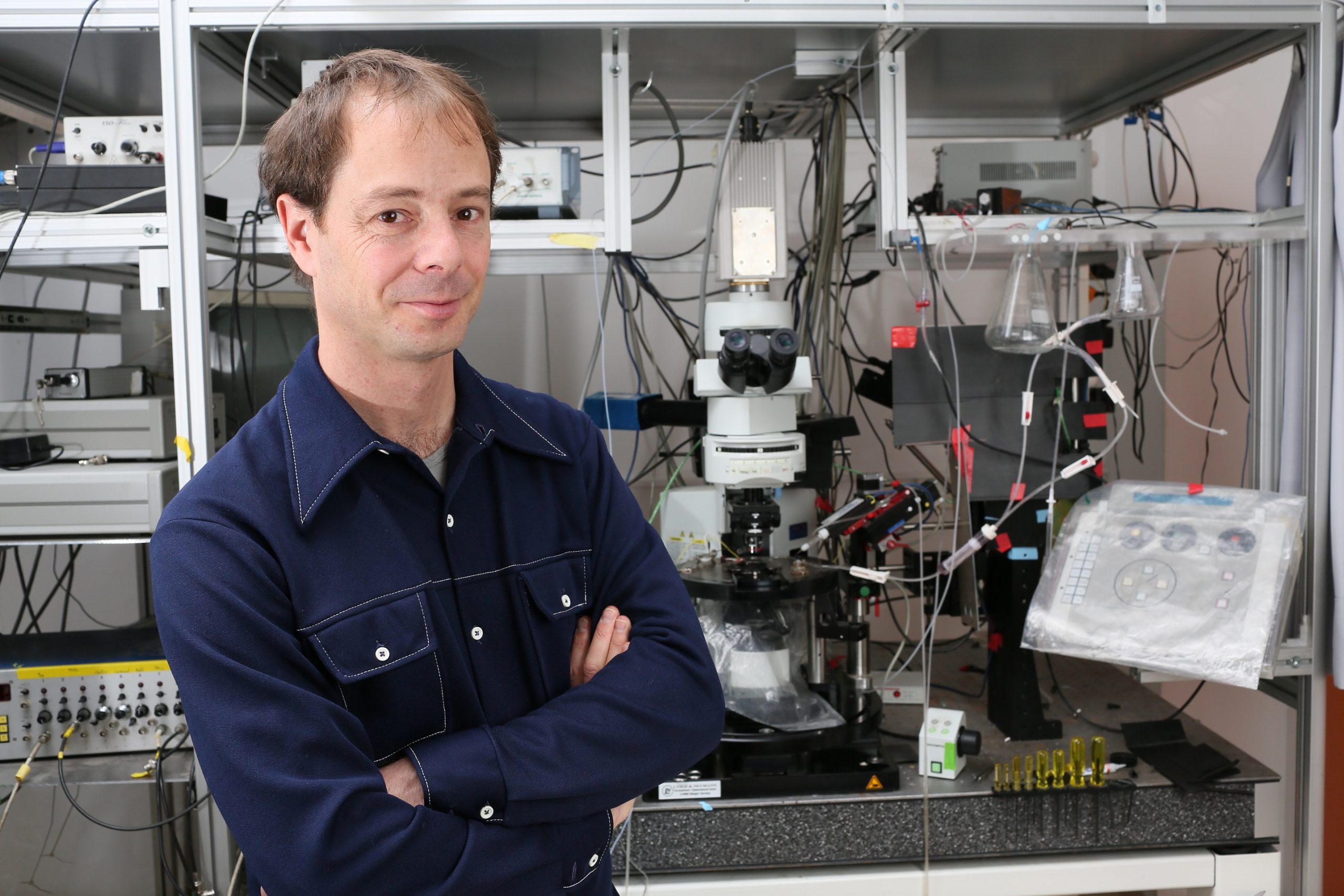
A new study at Hebrew University identified the function of a specific region in the brain in controlling our level of alertness, from states of deep sleep to states of vigilant and highly responsivity. They showed that when certain neurons found in a brain region called the claustrum are more active, we become less responsive to our surroundings during sleep. Activity of these same neurons also defines the level of our engagement with sensory information when we perform tasks. This study provides a fresh understanding of how attention works in the brain and could lead to new ways to treat various brain related disorders.
A new study, led by Professor Ami Citri, Dr Gal Atlan and a team from The Edmond and Lily Safra Center for Brain Sciences at the Hebrew University (ELSC), in collaboration with the research group led by Professor Yuval Nir at Tel Aviv University, uncovered the pivotal role of a brain structure called the claustrum in regulating engagement, from deep sleep to waking behavior. The findings shed new light on how our brains control responsiveness to sensory stimuli, potentially revolutionising our understanding of attention, impulse control, and even sleep disorders.

Professor Ami Citri, photo by Yoram Aschheim
The researchers recorded the activity of neurons in the claustrum of mice during an attention-demanding task. They discovered that increased activity in these neurons reduces sensory responsiveness and reduces impulsivity. Performing similar experiments during sleep also identified a role for claustrum neurons in supporting uninterrupted sleep.
Conversely, lower activity of claustrum neurons was linked to hyper-engagement and impulsive errors. In fact, by enhancing the activity of these neurons, the researchers could reduce both impulsive errors when mice perform a task, as well as the probability that mice will awake in response to sensory stimulation. These results highlighting the claustrum’s regulatory function during different arousal states.
“Our study provides compelling evidence that claustrum neurons act as gatekeepers of engagement, regulating how likely perception is to drive action,” says lead researcher Prof Ami Citri. “Understanding these mechanisms could offer new insights into a wide range of neurological and psychiatric disorders characterised by impaired impulse control such as ADHD, OCD, drug addiction, schisophrenia and other disorders….”
“This study enhances our understanding of the claustrum’s function in brain processes and opens potential pathways for addressing issues related to attention disorders and sleep disturbances,” says Prof Citri. “It provides valuable insight into how specific neural pathways influence behavioral states, advancing our knowledge of the complex interactions between sleep and alertness, and could lead to targeted therapeutic interventions.”
The research paper titled “Claustrum Neurons Projecting to the Anterior Cingulate Restrict Engagement During Sleep and Behavior” is now available in Nature Communications and can be accessed at https://www.nature.com/articles/s41467-024-48829-6
https://doi.org/10.1038/s41467-024-48829-6
Researchers:
Gal Atlan1, Noa Matosevich2,3, Noa Peretz-Rivlin1, Idit Marsh-Yvgi4, Noam Zelinger2,3, Eden Chen1, Timna Kleinman1, Noa Bleistein1,4, Efrat Sheinbach1,4, Maya Groysman1, Yuval Nir2,3,5,6,7, Ami Citri1,3,8
Institutions:
1) The Edmond and Lily Safra Center for Brain Sciences, The Hebrew University of Jerusalem; Edmond J. Safra Campus, Givat Ram, Jerusalem
2) The Sagol School of Neuroscience, Tel Aviv University
3) Department of Physiology & Pharmacology, Faculty of Medical and Health Sciences,Tel Aviv University
4) Institute of Life Sciences, The Hebrew University of Jerusalem; Edmond J. Safra Campus, Givat Ram, Jerusalem
5) Department of Biomedical Engineering, Faculty of Engineering, Tel Aviv University
6) The Sieratzki-Sagol Center for Sleep Medicine, Tel Aviv Sourasky Medical Center
7) Sagol Brain Institute, Tel Aviv Sourasky Medical Center
8) Program in Child and Brain Development, Canadian Institute for Advanced Research
The Hebrew University of Jerusalem is Israel’s premier academic and research institution. Serving over 23,000 students from 80 countries, the University produces nearly 40% of Israel’s civilian scientific research and has received over 11,000 patents. Faculty and alumni of the Hebrew University have won eight Nobel Prizes and a Fields Medal. For more information about the Hebrew University, please visit http://new.huji.ac.il/en.
